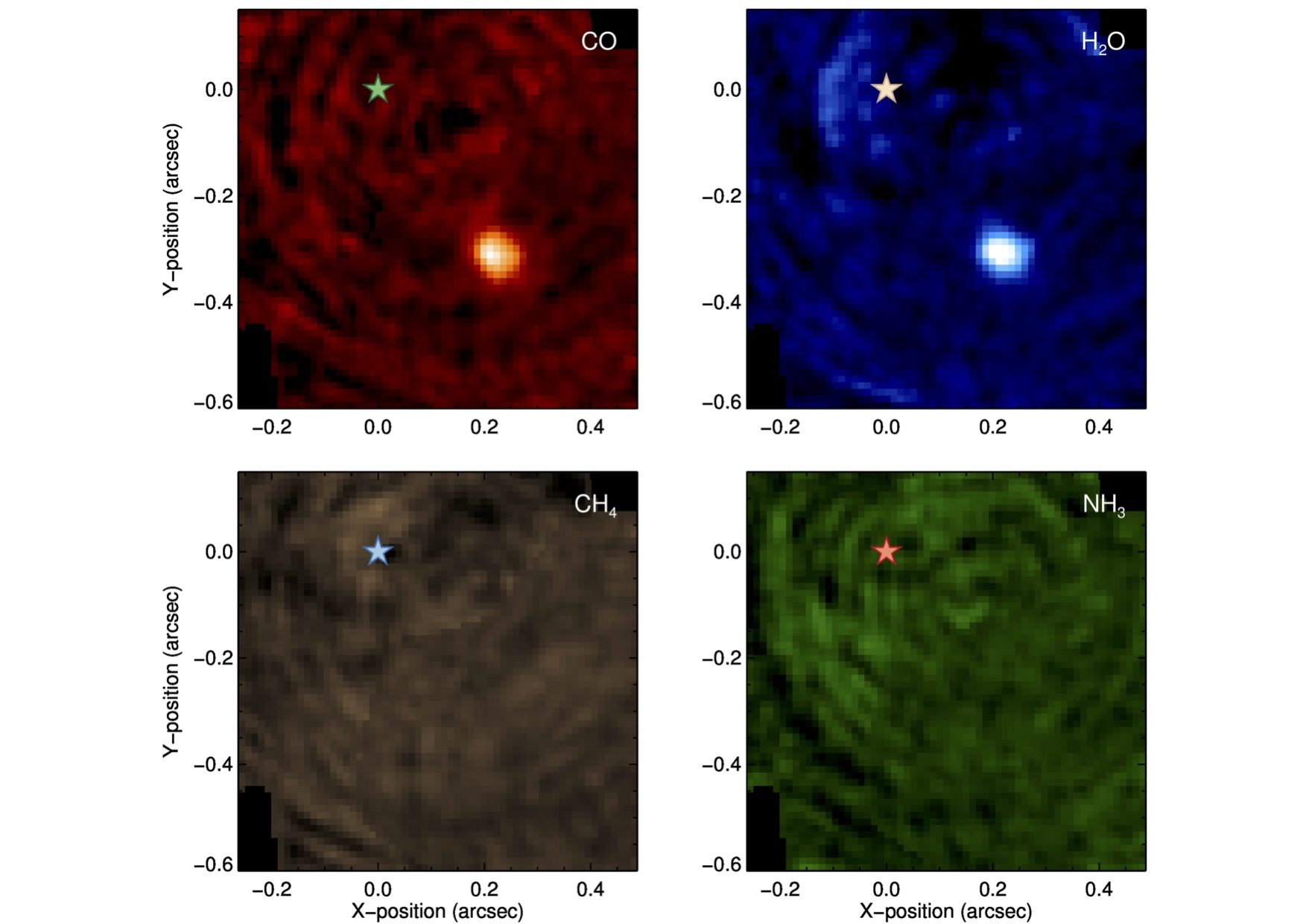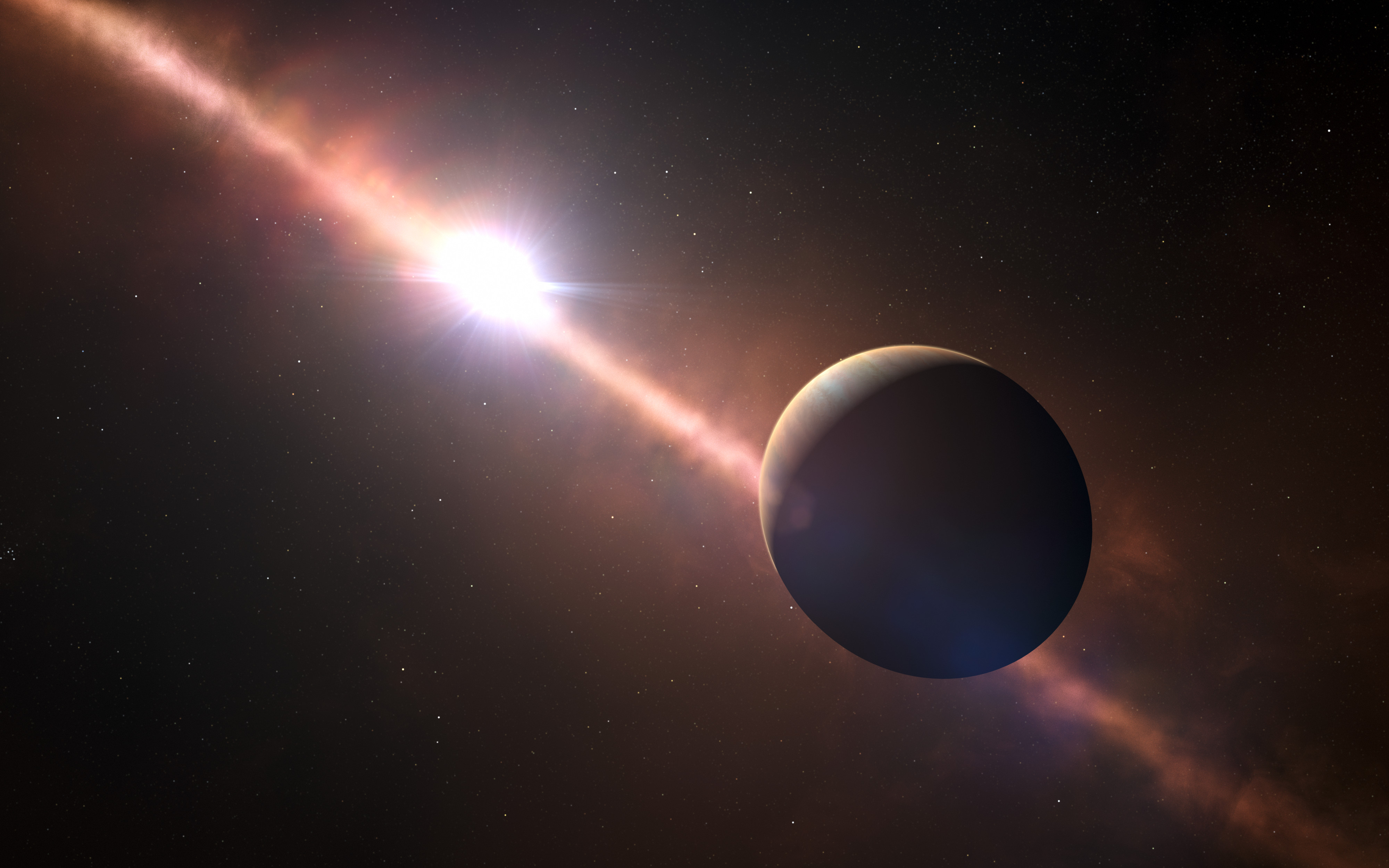Searching for planets with molecular fingerprinting
The star Beta Pictoris is 63 light years from Earth. In 1983, a dusty disk was discovered around it and in 2008, an exoplanet. This exoplanet is a gas giant with thirteen times the mass of Jupiter and was named Beta Pictoris b. Now the planet is being used for a test run of a new method for searching for planets. The technique, which the team of researchers describes here, works like this:
The fact that planets can rarely be seen directly in a telescope is normally due to the brightness of the central star that outshines everything else. Everything? Almost. If the received light is split spectrographically into wavelengths that are characteristic for certain types of molecules, the star can be removed from the image computationally. Stars are so hot that water and carbon monoxide cannot exist there, so frequencies corresponding to these molecules also cannot be coming from stars.
Using this method on images of Beta Pictoris b produced the following results: the star disappeared when looking for CO, H2O, CH4, and NH3. But when looking for only CO or H2O, the planet became visible.
Obviously, the gas giant is so hot that methane and ammonia molecules cannot exist there. The researchers thus can also determine the temperature of the planet, which, in this case, is 1700 degrees Celsius. The planet is also rotating very quickly about its own axis. With a rotational period of approximately eight hours, which produces an equatorial speed of 100,000 km/h, it is the fastest rotating planet known.

